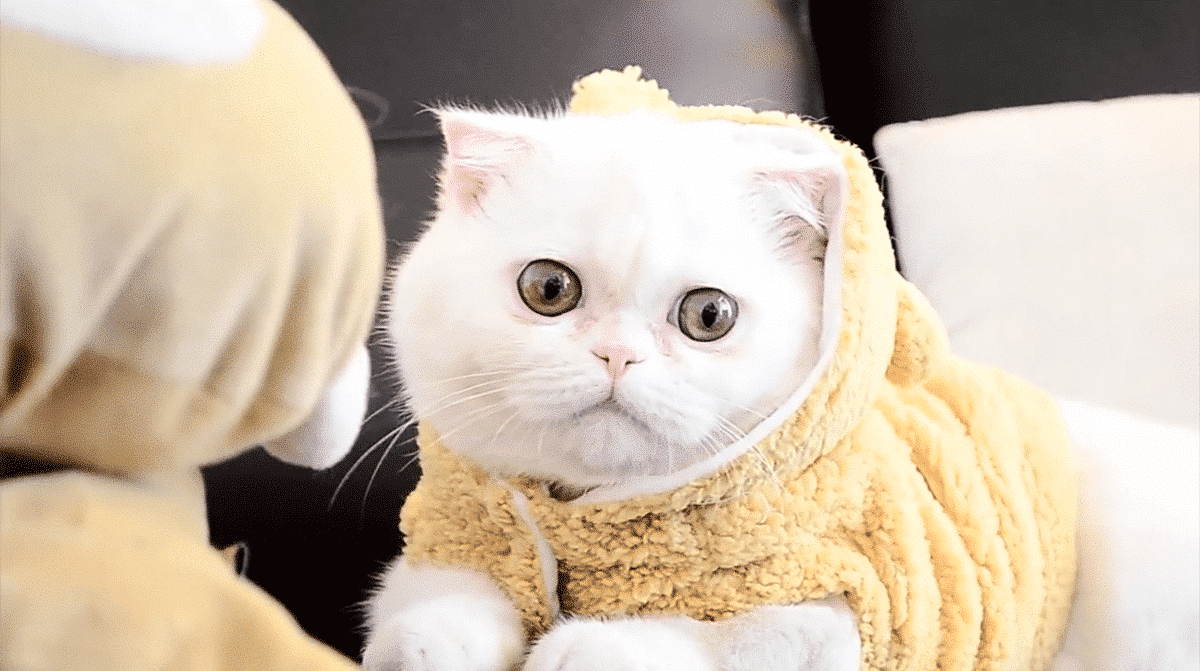The mysterious, elusive nature of the Exotic Shorthair has intrigued and captivated pet enthusiasts for years.
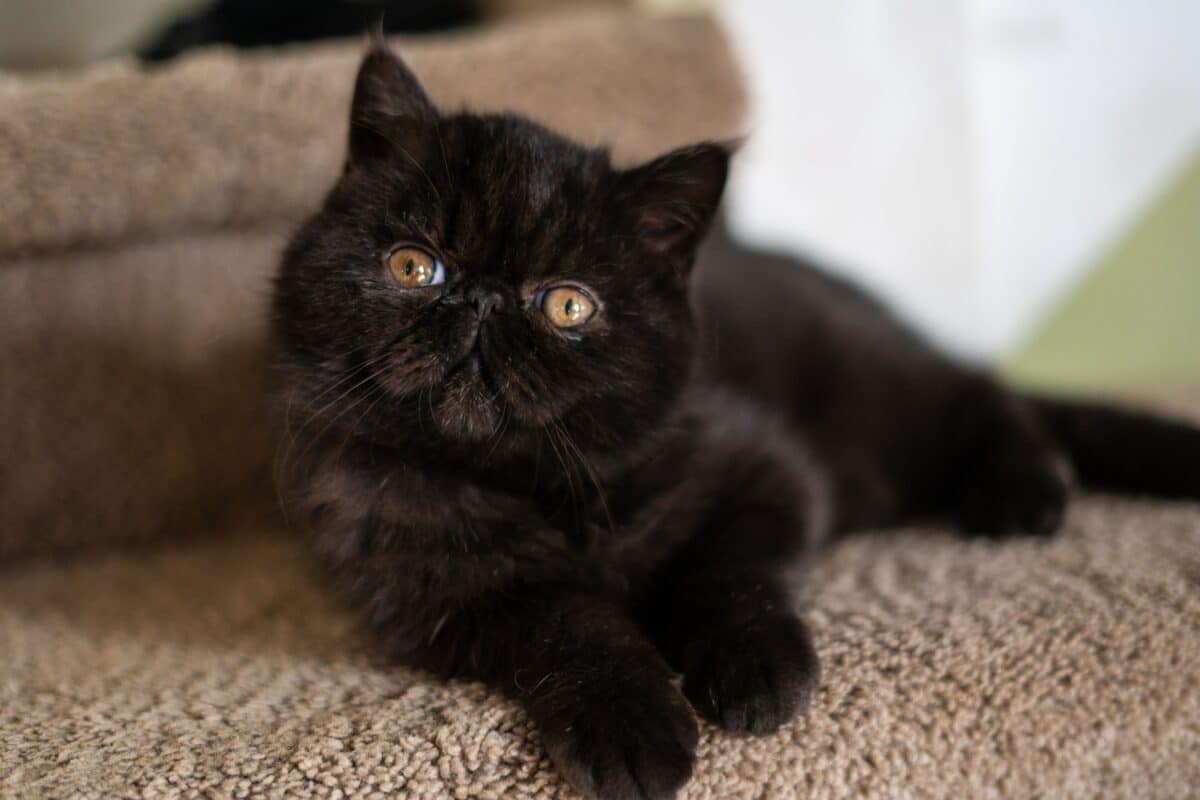
The breed’s physical characteristics and personality traits have raised many questions. Are they as laid-back as they seem, or do they harbor a hidden feistiness?
Are they affectionate or aloof?
In this article, we delve into the mysterious world of the Exotic Shorthair and seek to unravel its secrets.
The History of the Exotic Shorthair Breed
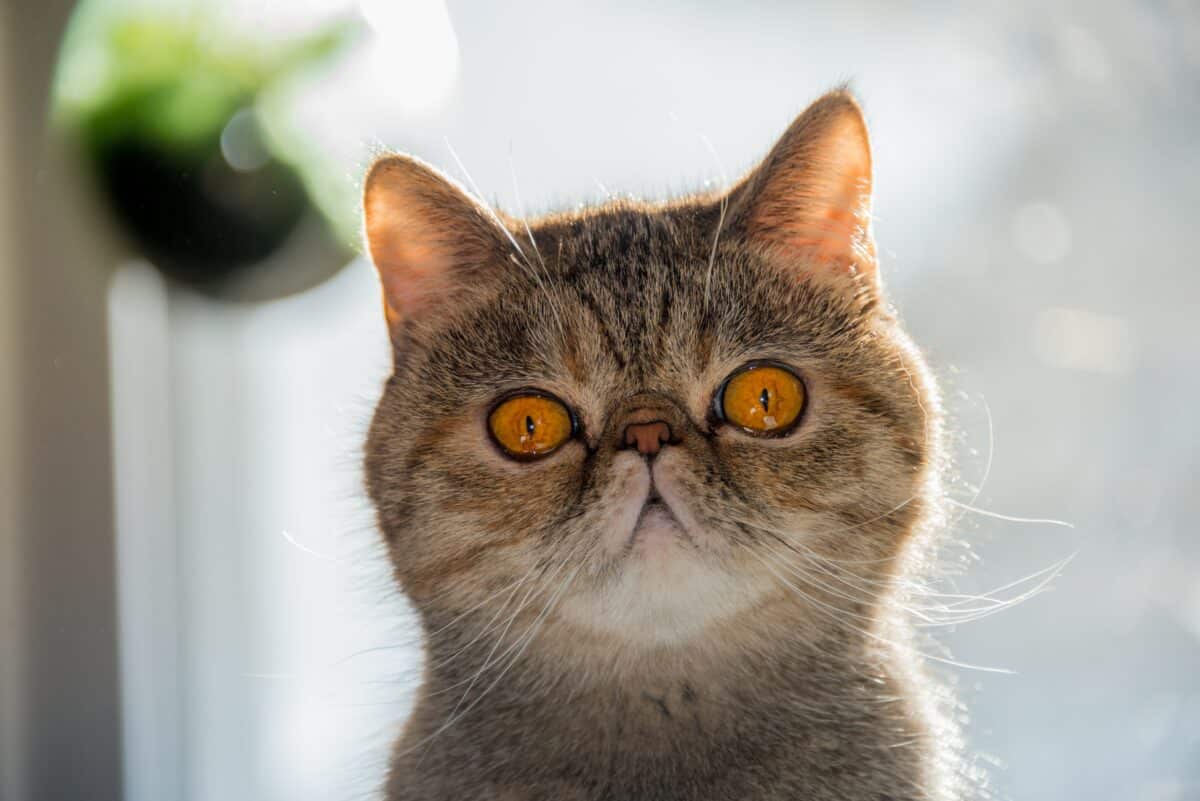
The origins of the Exotic Shorthair breed are shrouded in mystery.
Some say they are descendants of Persian cats, while others believe they result from breeding between American Shorthairs and Persians.
Regardless of their ancestry, one thing is clear: the Exotic Shorthair has a rich and fascinating history. Their evolution from their Persian forebears is nothing short of awe-inspiring. Their plush coat, short snout, and round face set them apart from the Persian cat, making them a distinct breed with unique characteristics.
They prove that evolution is unpredictable and can produce marvels beyond our wildest imagination.
Physical Characteristics of the Exotic Shorthair
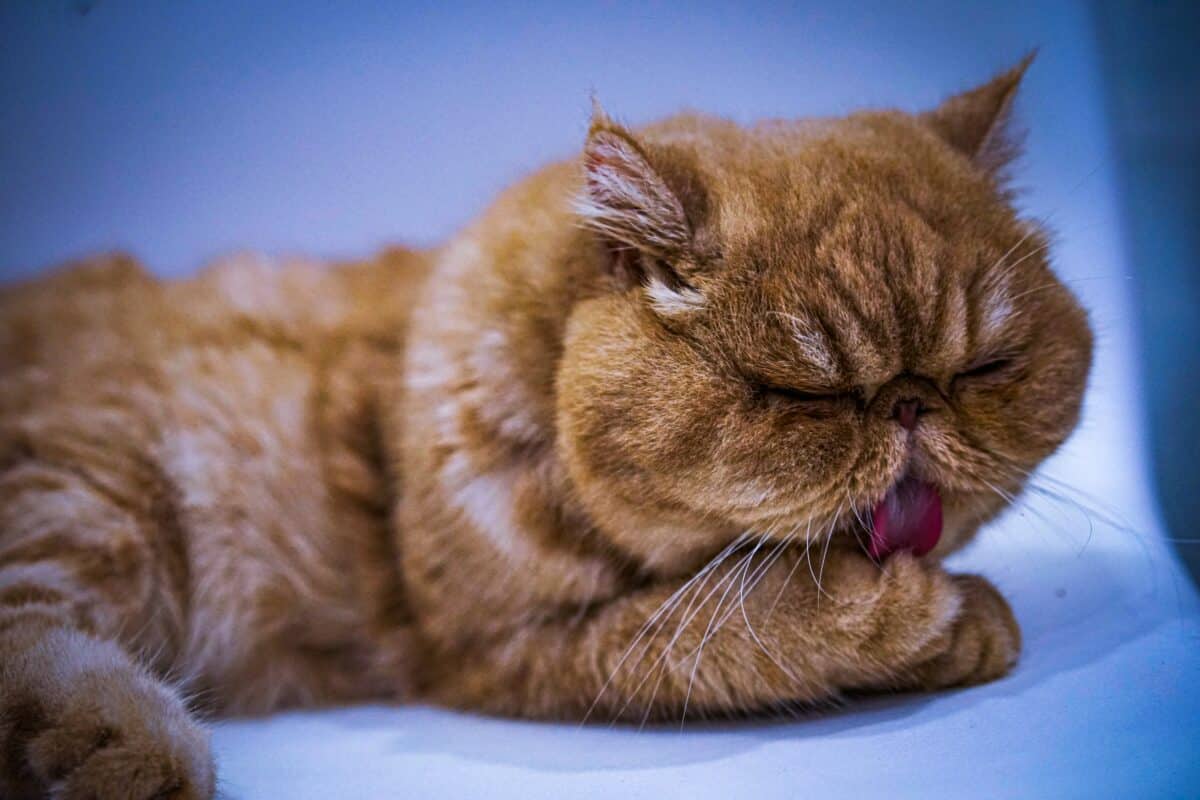
The Exotic Shorthair’s unique physical appearance distinguishes them from other feline breeds. Their short, plush coat is like running your hand through a fluffy cloud, and their round face and short snout give them a cute, almost childlike appearance.
Their large, expressive eyes are like windows to their soul, and their distinctive color patterns and markings add to their allure.
One of the most endearing physical characteristics of the Exotic Shorthair is their roundness. Their well-rounded, chubby body makes them look like plush toys.
Their legs are short, and their paws are like little cushions. They are the epitome of cuteness, and it’s hard not to be drawn to their physical charms.
Personality
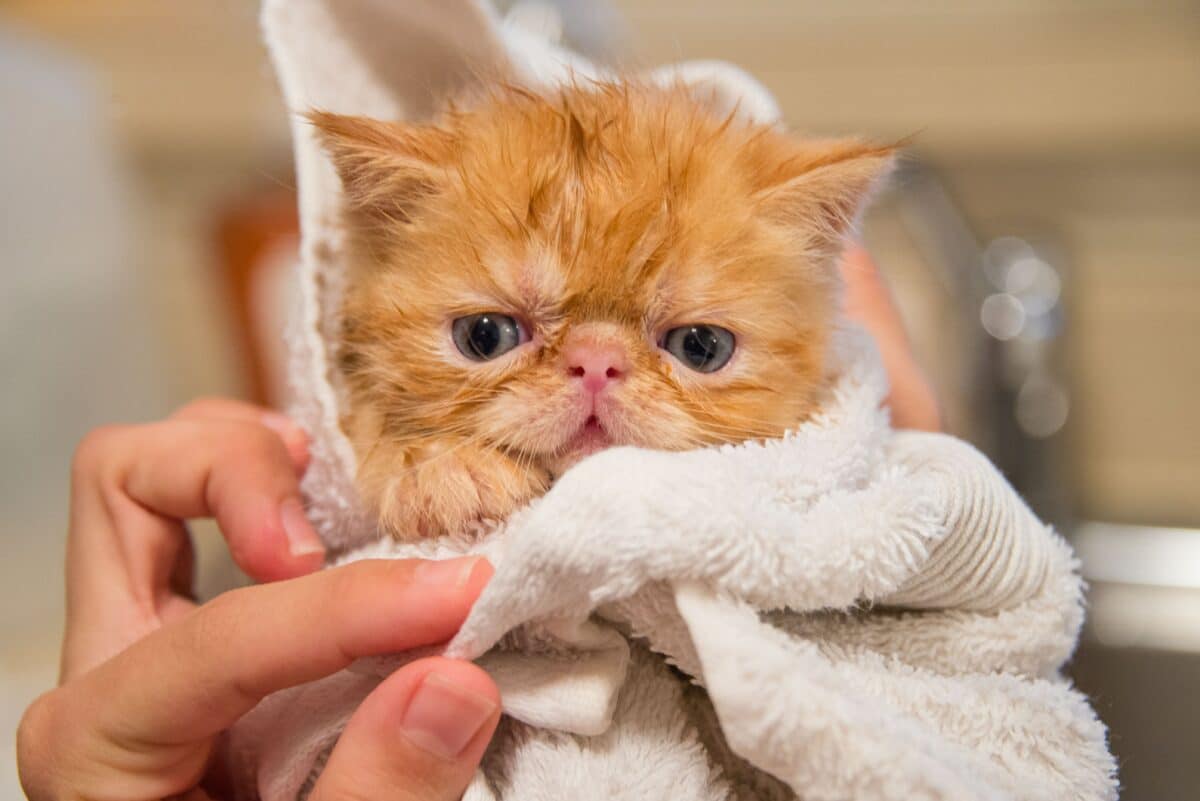
If you’re considering getting an Exotic Shorthair as a pet, knowing their unique personality comes with some quirks and challenges is essential.
Here are some key traits to keep in mind:
- Affectionate and Laid-back: One of the most endearing qualities of the Exotic Shorthair is their caring and laid-back nature. They love cuddling up with their humans and getting good head scratches. They are also incredibly patient and tolerant, making them great companions for families with children or other pets.
- Independent and Aloof: Exotic Shorthairs can be pretty independent despite their affectionate nature. They enjoy their alone time and may not always want to be held or cuddled. This doesn’t mean they don’t love you – it’s just part of their enigmatic personality.
- Playful and Intelligent: Exotic Shorthairs are known for their lively and intelligent nature. They love toys and games and can be trained to do tricks like fetch or play dead. They are quick learners and enjoy mental stimulation, so give them plenty of opportunities to exercise their minds.
- Adaptable and Versatile: Another great thing about Exotic Shorthairs is their adaptability. They can adjust to various living situations, whether in a small apartment or a large house. They also get along well with other pets, making them an excellent choice for multi-pet households.
Challenges of caring for an Exotic Shorthair?
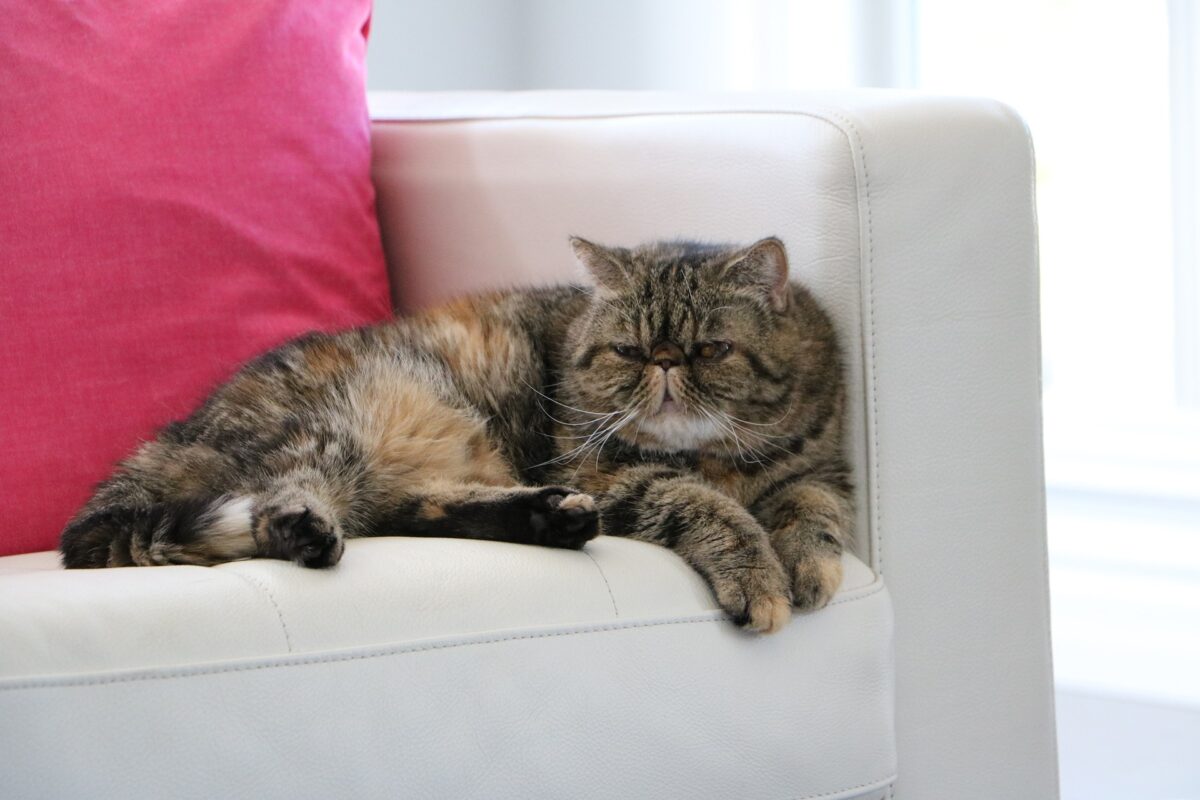
Exotic Shorthairs are fluffy, but their grooming needs can be a handful. With their adorable round faces and short snouts, they may struggle to keep their fur in check, leading to potential health problems like hairballs.
Fear not, dear cat lover, as we have some tips to keep your Exotic Shorthair looking and feeling fabulous.
- Brush Them, Brush Them, Brush Them: If you’re a fan of fluffy cats, you’re probably no stranger to brushing. However, you must step up your grooming game with an Exotic Shorthair. These cats need frequent brushing to keep their thick, plush coat in good condition. But don’t worry; this is a great bonding opportunity for you and your feline friend. Grab a soft-bristled brush and start brushing away. Not only will this help remove any loose hair and prevent mats, but it will also give your cat a luxurious spa-like experience.
- Bathe Occasionally, but Not Too Often: Bathing your Exotic Shorthair can be tricky. While they have a thick coat, they don’t produce a lot of oils, so they don’t need to be bathed too often. Once every few months should suffice. However, if your cat’s coat is dirty or smelly, it’s time to wash them. But beware, cats are not always fans of water, so make sure to use a cat-friendly shampoo and stay calm to avoid any undue stress.
Are Exotic Shorthair cats aggressive?
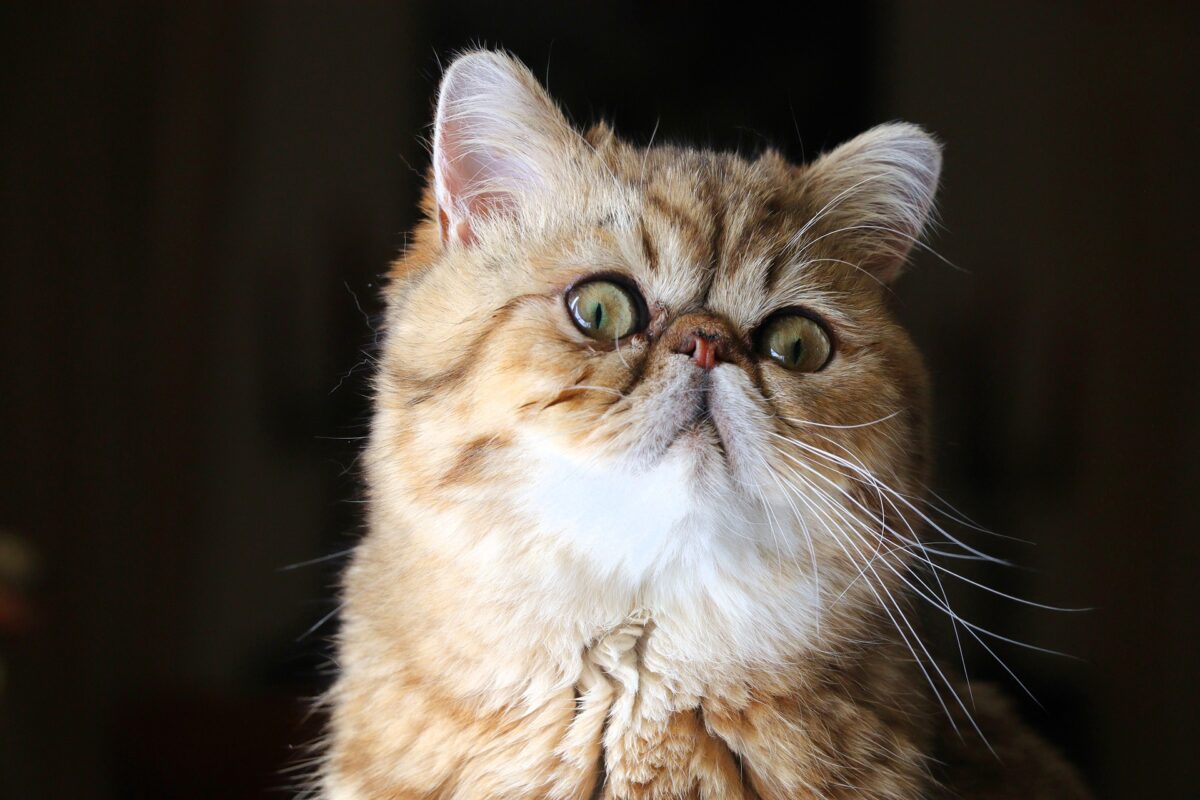
Exotic Shorthair cats are famous for their adorable looks, round faces, big eyes, and plush coats. However, their temperament is often a topic of debate among cat lovers. And this concern leads us to the million-dollar question, one that is most likely dashing through your mind;
Let’s dive in and explore.
- Genes: The Exotic Shorthair crossbreed between the Persian and American Shorthair cat. While Persians are known for their calm and docile temperament, American Shorthairs are more active and playful. As a result, Exotic Shorthairs tend to inherit a mix of both traits.
- Upbringing: Like any other pet, the personality of an Exotic Shorthair largely depends on how they are raised. They are more likely to be well-behaved and friendly if socialized and trained from a young age. However, if isolated or mistreated, they may become aggressive and develop behavior problems.
- Mood: Just like humans, cats can have their off days. Sometimes, an Exotic Shorthair may appear moody or aggressive for no apparent reason. This may be due to stress, illness, or environmental changes. It is crucial to observe their behavior and seek veterinary advice if you notice any sudden changes.
- Gender: Male cats are generally more territorial and aggressive than female cats. If you’re considering adopting an Exotic Shorthair, remember that males may require more training and socialization to curb their aggressive tendencies.
- Situation: Exotic Shorthairs can exhibit aggressive behavior in certain situations. For example, if they feel threatened or intimidated by other pets in the household, they may become defensive and aggressive. They may also display aggression during playtime or when they are overstimulated.
Health Issues
While Exotic Shorthairs are generally healthy cats, they have some health issues to watch out for. One of the most common is respiratory problems.
Due to their short snouts, they may have trouble breathing, especially when exercising or under stress. If you notice your cat wheezing or having difficulty breathing, take them to the vet immediately.
Another health concern for Exotic Shorthairs is polycystic kidney disease, and this inherited condition can lead to kidney failure if left untreated. Make sure you take your cat to the vet for regular check-ups and screening for this disease.
Exotic Shorthairs may also be susceptible to other health problems, such as eye, heart, and dental issues.
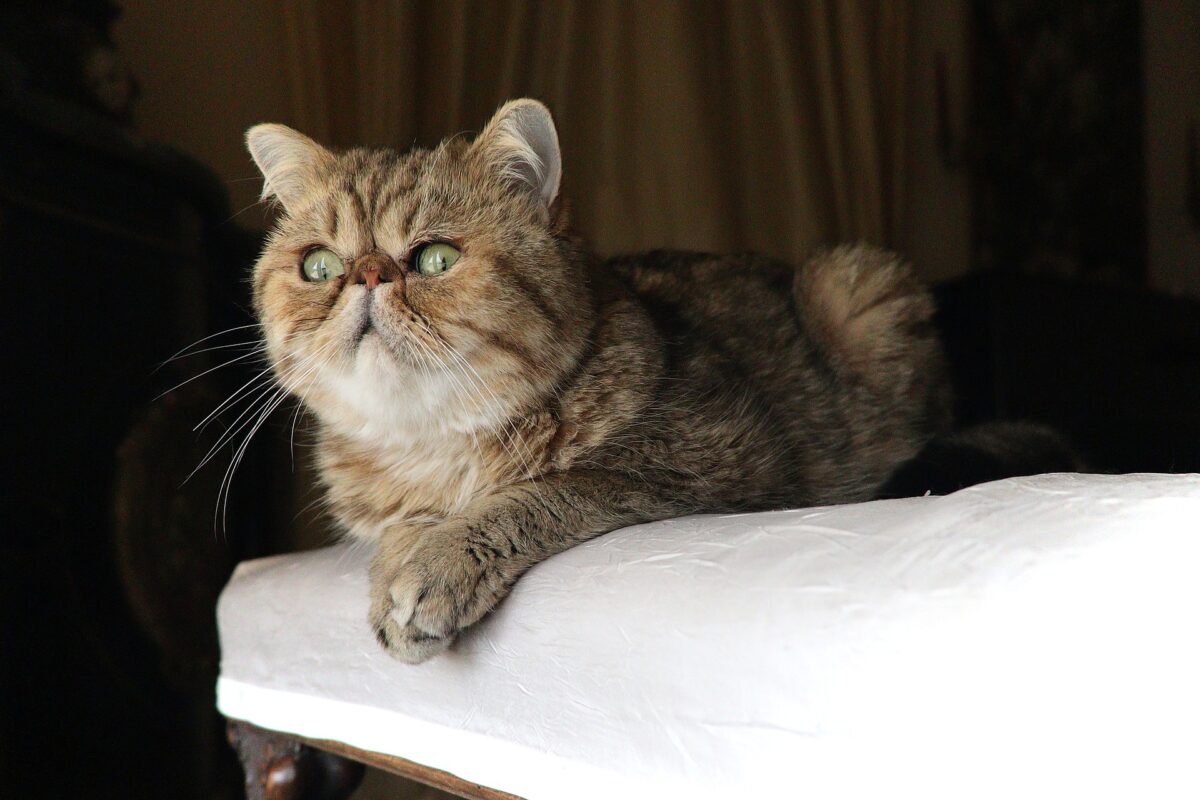
Are you ready to learn how to train and socialize your Exotic Shorthair?
Exotic Shorthairs are known for their independent and stubborn nature, which can make them difficult to train without proper socialization. Without socialization, they may develop behavioral issues such as aggression, anxiety, and destructive behavior.
But it’s nothing to lose sleep over!
With the proper training and a pinch of patience, you can train and socialize your Exotic Shorthair like a pro.
Here are tips to get you started
- Start early: It’s essential to begin training and socialization as early as possible. Kittens are more receptive to new experiences and are less likely to develop behavior problems as they grow older.
- Positive reinforcement: Exotic Shorthairs respond well to positive reinforcement techniques such as treats, praise, and playtime. Be sure to reward good behavior and avoid punishment, which can lead to fear and mistrust.
- Exposure to different environments: To prevent your Exotic Shorthair from becoming anxious or fearful, expose them to different environments, people, and other pets. This will help them to develop social skills and build confidence.
- Consistency is key: Make sure everyone in the household uses the same techniques and commands to avoid confusion.
Now that you have the basics let’s dive into specific training and socialization techniques.
Litter box training
Exotic Shorthairs are generally clean cats, but accidents can happen if they are not adequately trained to use the litter box. Show your kitten where the litter box is located and use positive reinforcement when they use it correctly.
Leash training
Yes, you read that right. Believe it or not, Exotic Shorthairs can be trained to walk on a leash! Start by introducing them to the harness and leash in a calm environment and gradually increase the length and duration of walks.
Interactive playtime
Exotic Shorthairs love to play, so provide them with plenty of toys and interactive playtime. This will help to stimulate their minds and prevent boredom.
Training commands
Teach your Exotic Shorthair basic commands such as “sit,” “stay,” and “come.” Use positive reinforcement and repetition to reinforce these commands.
Introduction to other pets
Exotic Shorthairs can be great companions for other pets, but it’s essential to introduce them slowly and carefully. Use positive reinforcement and supervision to ensure a smooth introduction.
As you can imagine (and rightfully so), training and socialization are crucial for the development and overall well-being and happiness of your Exotic Shorthair.
Mind-blowing Facts About the Exotic Shorthair
Buckle up because we’ve got fascinating facts that will leave you in awe!
- While they may look like they’re constantly smiling, exotic shorthairs are prone to a condition called “feline resting grumpy face.” This means that their face can look perpetually grumpy or annoyed even when content and relaxed.
- Exotic shorthairs are known for their love for food and can be prone to overeating. It’s essential to monitor their food intake and provide a balanced diet to prevent obesity.
- Unlike some breeds, exotic shorthairs are generally not vocal cats and prefer to communicate through body language and facial expressions.
- These notorious lap cats love nothing more than curling up with their favorite human for a cozy cuddle session.
Conclusion
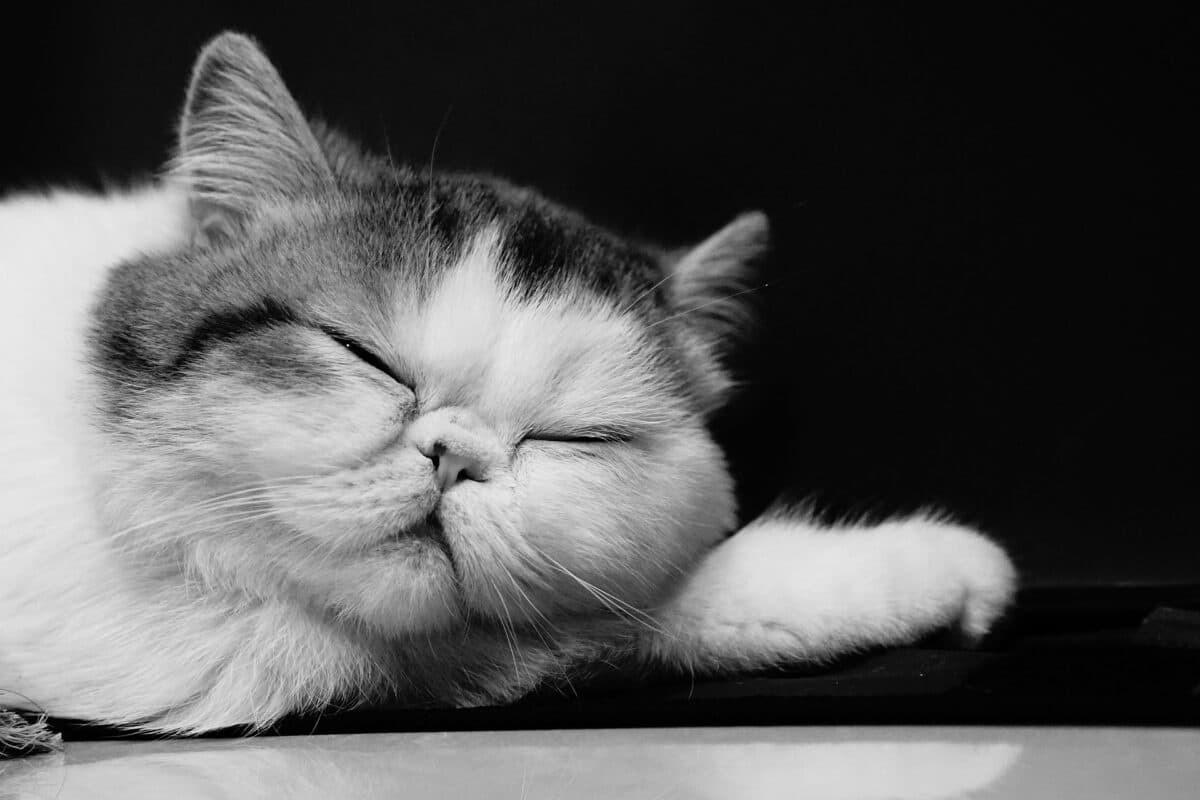
These adorable felines are unique and make excellent companions for anyone looking for a low-maintenance, affectionate pet.
Thank you for following along this article! Next up, The Enigmatic Persian Cat.
Join our Forum for free today!

- 400-Pound Therapy Llamas named Beni and Prince Ease Travelers’ Stress at Portland International Airport - July 22, 2024
- Woman Captured Howling with Gigantic White Wolf in Beautiful Footage - July 22, 2024
- Florida Police Urge Public to Stop Taking Selfies with ‘Depressed’ Black Bear off Highway 98 in Santa Rosa Beach - July 22, 2024

